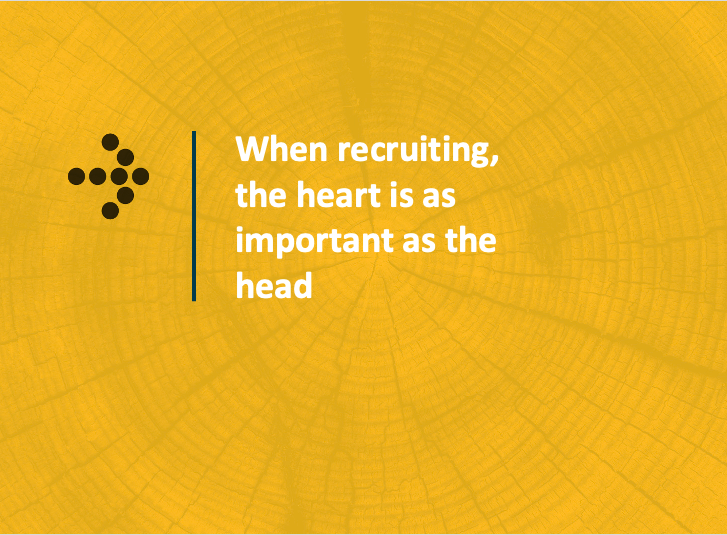When recruiting, the heart is as important as the head
When the Evalex Odyssey team first conceptualised the need for a web- and smartphone-enabled, gamified solution for high-volume and blue collar recruitment, we focused purely on identifying the key skills required for success. To do this, we used scientific and empirical processes such as job design, workshops, line manager interviews as process mapping. The result is a range of engaging, gamified assessments that accurately identify emerging talent at this level.
The strategic goal was to allow people who may have been blocked from entry into the world of work due to socio-economic and educational factors to shine, and to embark on successful and fulfilling careers.
The nine games we developed are extremely powerful and effective at identifying levels of skill across 10 dimensions, as well as trainability and productivity potential. However, our initial tests revealed that the games alone were not sufficient to fully inform accurate hiring decisions for entry level roles. We found that while we were able to identify which candidates had the “head” to learn quickly, problem solve effectively and generally cope with the complexity of the work being asked of them, many did not possess the passion for the content of the work they were being asked to do.
Understanding the skill and trainability of applicants was only completing part of the picture. As a result, we decided to incorporate two of our sister company’s behavioural tools into the Odyssey suite of products.
Many of our clients now combine the skills component (what I term the “head”) assessed in the nine games on the Odyssey platform, with Evalex’s licensed work-style and interests questionnaires (work orientation scale and work-type orientation scale).
This expanded battery introduces an element of job matching into the mix – matching candidates with the type of work they will be expected to perform – and has vastly improved the ability of our clients to identify and place emerging talent into roles that they are not only able to perform, but that they enjoy as well. And a happier employee is a more productive employee!
